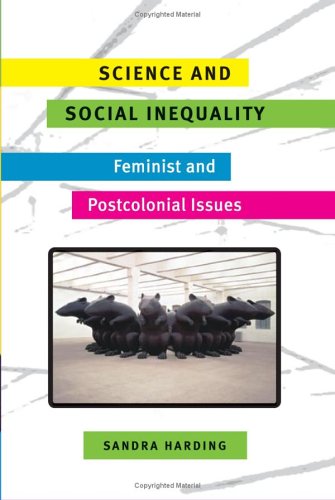Truth vs. relativism in science
By Kristopher A. Nelson
in
January 2010
300 words / 2 min.
Tweet
Share
In Science and Social Inequality by Sandra Harding, I found a discussion of claims to “absolute truth” in science (and the fear of relativism) particularly interesting.
Please note that this post is from 2010. Evaluate with care and in light of later events.
 In Science and Social Inequality by Sandra Harding, I found a discussion on p. 148 of claims to “absolute truth” in science (and the fear of relativism) particularly interesting:
In Science and Social Inequality by Sandra Harding, I found a discussion on p. 148 of claims to “absolute truth” in science (and the fear of relativism) particularly interesting:
The fear of relativism seems odd, also, when we consider that in daily life we are able to produce what most people, including law courts, regard as rational justifications for our knowledge claims. We do not think that such claims are absolutely true, under any conditions, now and forever; they are always revisable if additional evidence or a useful new conceptual framework appears. … Whether we are right or wrong to do so in particular cases, we routinely and confidently take such positions with respect to health matters, legal issues, and the everyday choices we must make. The arguments between absolutists and relativists seem to float free of such everyday experiences and the ways we think about them.
This kind of pragmatic approach to issues of truth and knowledge match my own predilections. I get frustrated by those who insist that truth is absolute and fight against relativism because it will lead to chaos and anarchy. I also get frustrated by relativists who insist that we cannot judge the world around us because we are simply imposing our own cultural values on others. Both positions seem absurd to me, and it’s nice to see a discussion of the pragmatic, everyday middle ground (a middle ground I’ve been trained to occupy as a lawyer as well).
